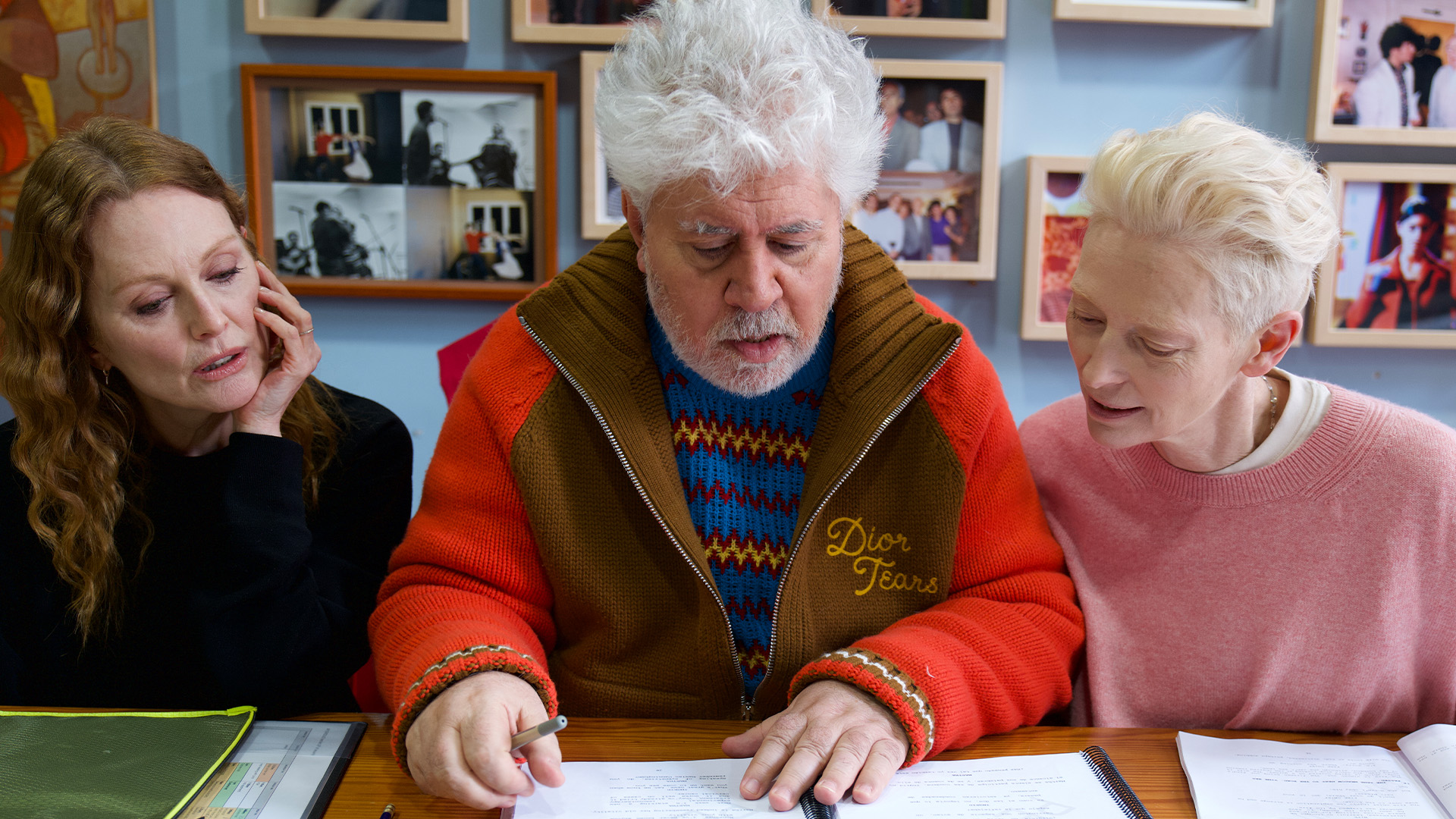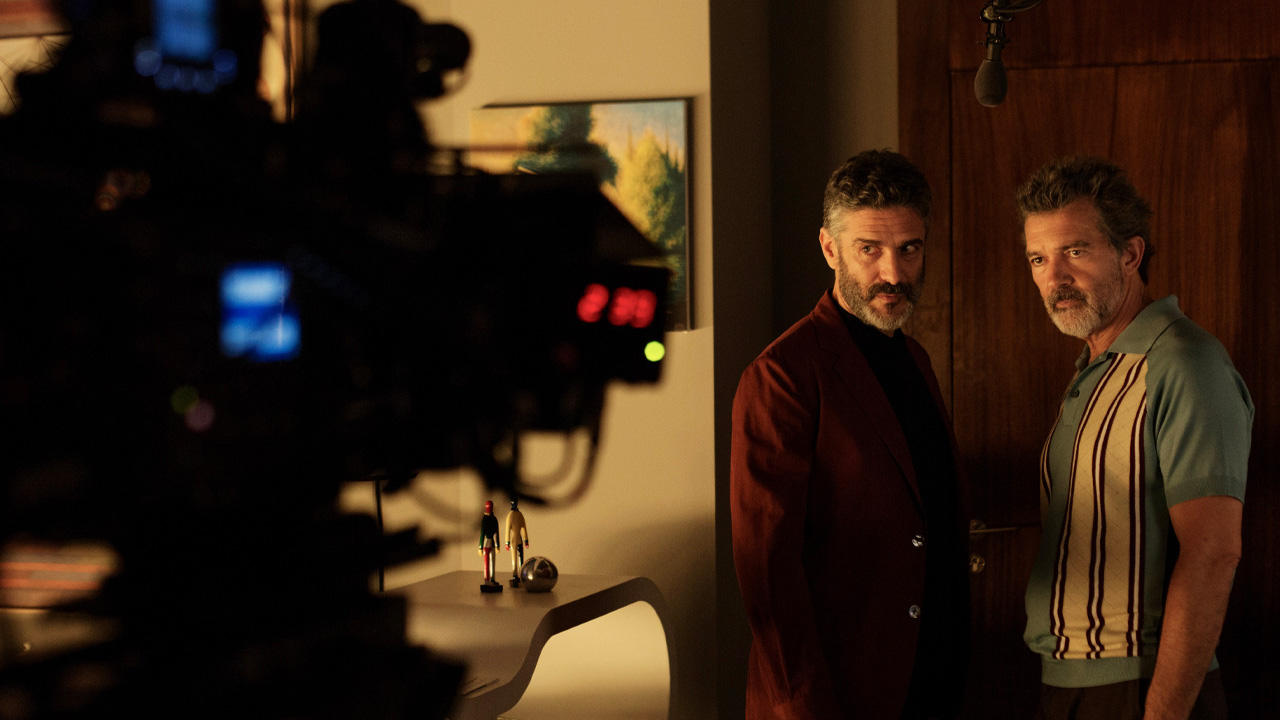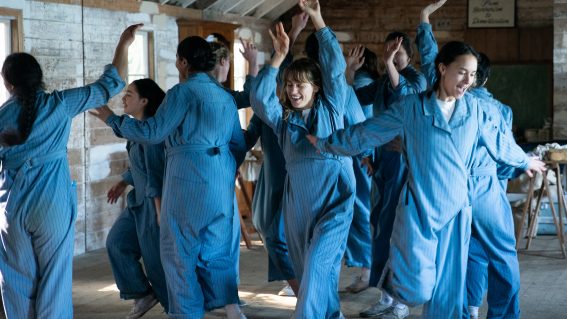Awesome Almodóvar: dive into the Spanish auteur’s best films

From crazy nuns to grieving mums via madmen and angels, Stephen A Russell explores the filmmaker’s fantastic career.
The Room Next Door
Beloved Spanish auteur Pedro Almodóvar, the mischievous genius behind such beloved movies as Talk to Her, All About My Mother and Pain and Glory, is a remarkable man. One of the most influential contemporary filmmakers, he’s the bringer-in of countless fans who swore they’d never read subtitles.
Now you don’t even have to, as he delivers his beautifully drawn debut English-language feature The Room Next Door, starring the luminously oddball Tilda Swinton and equally magnificent Julianne Moore.
But how did we get here, via an abundance of luscious greats along the way?

Outrageous beginnings
Arriving in a tumultuous period for the country and the world at large, in the shadow of both the Spanish Civil War and World War II, Almodóvar was dramatic from birth. Born in 1949 in the tiny regional town of Calzada de Calatrava, at the foot of the Sierra Morena mountains, he grew up under the dictatorship of Francisco Franco.
Dispatched to a religious boarding school at eight years old, Almodóvar’s family intended him to become a priest, but his queerness had other ideas, and his purest devotion was to the stage and silver screen. By the time he picked up his first Super 8 camera, Franco had closed all the country’s film schools, forcing a DIY approach. In the aftermath of the dictator’s death, an energised Almodóvar rode the wave of La Movida Madrileña countercultural movement.
After a flurry of shorts in the 70s, his first feature Fuck… Fuck… Fuck Me Tim! failed to find a distributor (wonder why?). Instead, it was 1980’s Pepi, Luci, Bom and Other Girls Like Mom, led by original muse Carmen Maur in a rape revenge storyline setting her against a cop, that introduced him to a wider audience sucked in by his outrageous ideas.

Rape is played for uncomfortable laughs in quite a few of his anarchic early features, including 1982’s nymphomaniac farce Labyrinth of Passion, the first to feature baby Antonio Banderas, if only fleetingly, as a hapless queer terrorist. He graduated to lead in 1986’s Matador, as the less-than Ángel, and there is wicked pleasure in these outré offerings that should be viewed in the polite society-shattering, queer in every sense of the word, oeuvre of Derek Jarman in the UK and John Waters in the US.

Enter, La Cruz
Of all his many muses—we’re including Banderas and Javier Bardem as well as the astounding Rossy de Palma, Marisa Paredes and Cecilia Roth—it’s arguably Penélope Cruz that Almodóvar stans associate most with his brilliance.
She first showed up in 1997’s fascinating Live Flesh, Almodóvar’s fast and loose spin on Ruth Rendell’s psychological thriller novel. Easily stealing the opening scene, she depicts Isabel, a sex worker who gives birth on a bus at Christmas as Franco enacts a state of emergency. It’s a quick cameo before the plot leaps to her now adult son in an out-there crime drama that also marks Bardem’s first film with Almodóvar, playing a wheelchair-using detective.
Cruz is at the heart of 1999’s majestic All About My Mother, shining bright alongside many of Almodóvar’s favourite women. Invoking the spirit of Blanche Dubois from Tennessee William’s A Streetcar Named Desire—performed in a play within the movie—it’s a swirling melodrama led by matriarchal power that directly addresses the HIV/AIDS crisis, casting Cruz as a pregnant and positive nun and leaving not a dry eye in the house—subversive sisters have been a recurring theme since 1983’s Dark Habits.
Solidifying her star power, Cruz kept coming back for more, rightly securing her first Oscar nomination for 2004’s Volver. She played Raimunda, a working-class woman who fights back against her abusive husband in a powerful upending of Almodóvar’s early films. Another Academy nod came for 2022’s gut-punch of a movie Parallel Mothers, looking squarely at the consequences of the Spanish Civil War and the countless souls disappeared.

Who watches the filmmaker?
While Almodóvar has meta-textually touched on filmmaking in many of his movies—including in 2009’s heartfelt Broken Embraces, casting Cruz alongside Lluís Homar—he has never brought it quite so close to home as he does in 2019’s sublime Pain and Glory. While Cruz is as magical as ever, essentially depicting his mother, it’s Banderas who breaks our hearts as an ageing filmmaker full of regrets, held back by both his failing body and writer’s block before a former lover’s embrace reawakens grace.
On the male lead front, Javier Cámara and Darío Grandinetti excel in 2002’s trippy Talk to Her as men who bond over women in comas in a film that returns to the matador theme, this time gender-flipped. It also reawakens the darker thread of Almodóvar’s earliest films. As does 2011’s The Skin I Live In, starring Banderas as a mad scientist opposite the magnetic Elena Anaya in a freaky Frankenstein riff that brings Almodóvar closest to Cronenberg territory.
The filmmaker first dipped his toes into making a movie in the English language alongside Swinton in 2020 short The Human Voice, as a woman coming to terms with the reality of her abandonment, then in queer Western Strange Way of Life with Pedro Pascal and Ethan Hawke. But it’s The Room Next Door that perfects this experiment.
Adapted from Sigrid Nunez’ novel What Are You Going Through, it brings back Swinton as Martha, a former war correspondent hoping to navigate her impending end of life on her own terms. News of her terminal cancer diagnosis brings Moore’s author, Ingrid, in from the cold of their frozen friendship and they fall back into each other’s hearts.
Working Almodóvar’s textbook melodramatic pizzazz alongside his love of architecture porn as colourful as his character’s fashion choices, it’s a worthy new entry in a career that’s surely far from the grave yet.
















